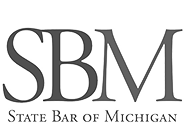What Exactly Is The Probation Process Like Under Michigan State Law?
First and foremost, there are currently no private probation departments in the State of Michigan. Some states have implemented private probation departments, like private jails and private prisons. These are for-profit companies (whether technically public or private) instituting private solutions to an essentially public need. They are not owned by the government, but rather they are hired by the county or the state to supervise defendants while they’re on either felony or misdemeanor probation.
Michigan does not have that privatized probation system. Rather, Michigan has a probation system run by public entities (that is, run either by the city, county, or state government). As such, when someone is on probation in Michigan, they have the city, state, or county to answer to. If Michigan’s probation system was privatized, people on probation would have the private company to answer to. Private companies can change their mind on a whim, including in how they treat probationers.
Since that is not the case, and Michigan has a government-run probation system instead; the system is pretty uniform on how it treats probationers. Of course, the probation departments within any district court system do have discretion on how they treat individual people under probation. However, their purview is still more closely dictated by state policies. In practice, every probation officer has their own discretion on how to treat their defendants under their control. That discussion on how to get along with your probation officer will be discussed at greater detail in the section How to make friends with your probation officer.
In Michigan, a person is placed on probation because they are accused of a crime and then accepts responsibility for that crime either through a guilty or no contest plea. A no contest plea (Nolo Contendere) is telling the court you are not admitting to the crime, but instead are not contesting the allegations for the purposes of the plea only. That way, if anyone sues you for your actions in the crime in civil court, they cannot use your statements made during your plea as a factual basis to sue you later. The crime you are on probation for and in question could be anything from a misdemeanor to a felony. The term “misdemeanor” under Michigan Law refers to any crime punishable by a maximum sentence of a year or less in county jail. Any crime punishable by more than a year in prison is considered either a “high-court misdemeanor” or a felony.
Is The Probation System Run Differently When It Comes To Misdemeanor Defendants And Felony Defendants?
Felony probation and misdemeanor probation are run differently, and both are run and staffed by different people and agencies.
Felony probation in Michigan is staffed by the Michigan Department of Corrections (MDOC), which hires probation officers around the state for felony-level defendants. While those officers are in the county system, they are run by the State of Michigan, as are their offices.
Misdemeanor probation in Michigan is run through the District Courts and local municipalities (though sometimes, certain cases are run by the county). The Michigan State Government has programs that allow the District Courts and municipalities to hire their own probation departments, which is how misdemeanor probation in Michigan operates most of the time.
Sometimes the county has jurisdiction over certain misdemeanor probation cases, but mostly they are handled by local municipalities and/or the District Courts. Probation officers for misdemeanor cases are largely run by the local District Court judge in a given county, city, or township. CourtWorks is one example of a program run by the District Court that supervises probation.
Though they are run differently in certain ways, and are run by different governmental agencies, misdemeanor-level probation and felony-level probation are generally the same concept. If you are convicted of a crime, you may be required to complete a period of probation as part of your sentencing, whether that crime is a misdemeanor or a felony.
A given probationary period in Michigan could last anywhere from 1 to 5 years. Although, recently the state has issued directives to allow defendants on most types of probation, both misdemeanor and felony probation, to allow a defendant to petition the supervising court to reduce their probation status by 50%, after all terms and conditions are met. Each probation sentence can also have specific requirements, largely depending on the specifics of each case, and usually up to the discretion of the judge hearing the case.
For instance, the terms of your probation may require you to abstain from drugs and alcohol, to observe a curfew, to submit to regular drug and alcohol testing, and/or to attend educational programs, therapeutic programs, and self-help programs.
Examples of programs that might be included as a term of probation in Michigan include AA or NA (Alcoholics Anonymous or Narcotics Anonymous), Gun Awareness programs, and Theft Awareness programs, among others. People on probation can also be ordered to go to therapy or attend counseling programs, or to continue and/or complete any therapy or therapeutic program they are already engaged with. As an example, often people convicted of domestic violence offenses are required to attend and complete a 26-52 week program with a domestic violence therapist. Most of the time, in addition to the punitive (punishment-based) terms of probation, there will also be educational elements and requirements.
One of the probation officer’s roles is to carry out the Judge’s sentence of probation and to enforce the terms of probation. However, it is equally an essential part of their role for them to communicate with the defendant about any possible compliance issues, and to support the defendant in successfully completing their probation with little to (ideally) no violations.
How Long Does Probation Last For Varying Criminal Convictions In Michigan?
The length of probation depends on the conviction. If you are convicted of a felony, you can be on probation for up to 5 years (though in new cases, they are changing that cap to up to 3 years). On a misdemeanor, the longest probation can last is up to 2 years or 24 months.
What Are Some Examples Of Terms Or Conditions Of Probation In Michigan?
There are many different types of terms and conditions of probation in Michigan, most of which correspond specifically to the criminal conviction and the defendant in question.
For example, let’s say a defendant was convicted of a second drunk driving offense, which carries up to one year in county jail as a penalty. In the probation order for such a conviction, potential terms and conditions could include
- Alcoholics Anonymous attendance on a daily or weekly basis for a period of time
- Drug or alcohol counseling, which could either be with a therapist of your choosing, or with a local therapist that works with the court
- Alcohol or drug testing programs, in which you have a daily check-in and may be required to get tested for drugs or alcohol at any time
- Soberlink devices (a portable machine the size of a large iPhone that can test for alcohol multiple times a day and report remotely)
- Ankle bracelets, or “Scram Tethers”, which are connected to your vitals and can constantly test for alcohol. This sort of device has the upside of not having to go in for testing, but the downsides of invasiveness and the fact that the machines can sometimes be set off by products like Windex or NyQuil.
For more information on Probation Process Under Michigan State Law, a free initial consultation is your next best step. Get the information and legal answers you are seeking by calling (800) 710-0529 today.
Awards and Accolades



